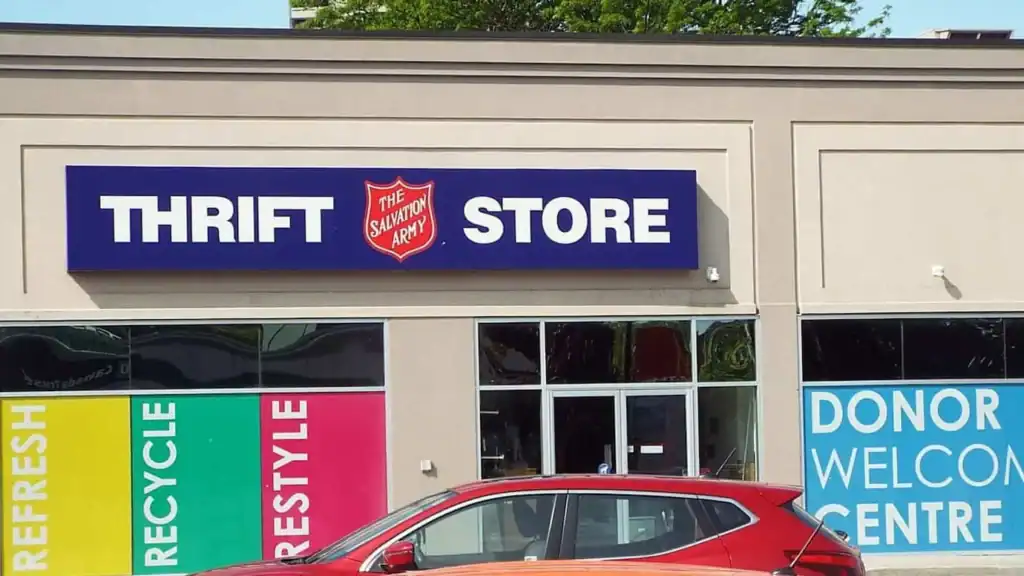Moving when you’re low-income can feel overwhelming — especially if you’re facing an emergency, eviction, or sudden life change. The cost of relocating adds up fast, but there are programs that can help.
From grants and emergency assistance to volunteer-based labor and discounted truck rentals, families may qualify for support through government agencies, nonprofits, or local community groups.
This guide breaks down where to get help, what you’ll need to apply, and how to reduce moving costs when money is tight.
Types of Assistance for Moving
Moving assistance falls into a few main categories, and knowing the difference can help you find the right kind of support for your situation.
- Financial assistance includes grants and emergency funds to help cover specific moving costs like truck rentals, supplies, or labor. Some programs are tied to urgent situations, such as leaving unsafe housing or facing an unexpected eviction.
- Logistical help refers to physical support with your move. This might include volunteer-based moving labor, discounted transportation, or short-term storage solutions if you need time between homes. These services can make it easier to move without reliable transportation or extra help.
- Relocation-related housing support may apply if you’re already receiving benefits like The Housing Choice Voucher Program (also known as Section 8). Some programs allow your voucher assistance to transfer to a new location, but eligibility rules vary by agency. If this applies to you, contact your local housing authority to learn what’s possible.
What You Need to Apply for Assistance
To apply for moving assistance, you’ll need to show documentation that proves your situation and the amount of support you’re requesting. Most programs ask for a government-issued ID, proof of income (such as bank statements or pay stubs), and cost estimates for your move.
If you need help with truck rental or moving labor, request written estimates from a rental company or moving provider. Be specific — itemized quotes for packing, loading, or storage help speed up the process and improve your chances of qualifying.
Government Programs That May Offer Moving Assistance
Low-income families may qualify for help with moving costs through government programs. While availability and support vary by location, several programs offer financial or logistical assistance if you meet certain criteria.
Temporary Assistance for Needy Families (TANF)
TANF is federally funded but administered by individual states. It provides cash assistance to low-income families with children, which can sometimes be used for moving-related expenses. For example, California’s CalWORKs program offers financial help for relocation. To apply, contact your state’s human services or public assistance office.
U.S. Department of Housing and Urban Development (HUD)

U.S. Department of Housing and Urban Development (HUD) doesn’t have a dedicated program that provides funds directly to families. Rather, it offers various programs that may cover certain moving costs through local agencies:
- Housing Choice Voucher (Section 8) Portability: If you already receive rental assistance, you may be able to transfer your subsidy when relocating to a new area. While it doesn’t cover moving costs directly, it can help make your move financially possible. Check with your local housing authority.
- Emergency Solutions Grants (ESG): Offers short-term financial help to those experiencing homelessness or at risk of losing housing. These funds can be used for truck rentals, moving labor, or storage.
- Uniform Relocation Assistance and Real Property Acquisition Policies Act: If you’re displaced due to a federally funded project, the URA may require the agency to cover relocation costs, including transportation of personal property, packing and unpacking, temporary storage, and even related utility reconnections.
Check with your local agency to confirm what’s covered, and start the application process as soon as possible, since some programs take time to process.
Nonprofit and Charitable Organizations Offering Free Moving Help
Many nonprofit and charitable organizations offer support to low-income families, including assistance with moving-related expenses, temporary housing, or basic needs during a transition. Here are several national resources that may be able to help:
Catholic Charities USA
Catholic Charities operates more than 150 agencies across the country, supporting people of all faiths. Depending on location, services may include emergency housing, food distribution, and help with essential costs during relocation. Use their Agency Locator to contact the nearest office and ask about moving-related assistance.
The Salvation Army

This organization provides a wide range of services during times of crisis. Depending on your situation and location, they may offer help with transportation, emergency lodging, or referrals to local programs that assist with moving expenses. Their services are often tailored to people fleeing domestic violence or experiencing sudden displacement. Use the location finder to reach out.
Modest Needs
Modest Needs offers Self-Sufficiency Grants for people facing temporary financial hardships. These short-term grants can sometimes be used for truck rentals or other moving expenses. The online application is free and takes about 30 to 45 minutes to complete.
211
Dial 211 to speak with a trained community specialist. They can connect you with local resources for transportation, labor, emergency funds, and more. They also may refer you to a social worker or other contact. Services are tailored to your zip code, so they vary by region.
Feeding America
While not a moving-specific service, Feeding America supports those facing food insecurity during transitions. Getting help with groceries can free up money for critical moving costs like transportation or supplies. Use their food bank locator to find nearby programs if you need assistance while relocating.
Free or Discounted Services Through Community Resources

The support you need may be available right in your own community — the key is knowing where to look and who to ask. This type of help is usually location-specific, so it’s important to contact local organizations in your neighborhood or city directly. The following are great starting points:
Local churches and religious organizations
Some churches assist community members with packing, transportation, or moving supplies. You don’t need to be a member to ask for help. Search for “churches near me,” then call or email to explain your situation. Even if they can’t assist directly, they can often refer you to local programs that can.
Transitional Housing and Domestic Violence Programs
If you’re fleeing domestic violence or facing housing instability, transitional housing programs may help.
“Local youth groups, AmeriCorps, and Key Club often run service projects to help people in the community. Volunteers may be available to help with lifting, loading, or providing supplies.”
While their main focus is housing, some also offer relocation support, such as transportation or temporary storage. Search online for “transitional housing” or “domestic violence shelter” along with your city and state to find nearby options.
Mutual aid networks
Mutual aid groups are community-based support networks where neighbors help each other directly. Some offer free moving help, like packing supplies, labor, or even transportation. To find one near you, use the Mutual Aid Hub, then:
- Enter your ZIP code in the search bar.
- Uncheck any boxes that don’t apply (like “food resources”) to filter results.
- Click on “Community” under each listing to find its social media profile or website.
You can also search Facebook or Reddit for mutual aid groups in your area using terms like “mutual aid [city]” or “help with moving [city].”
Facebook community groups
Local Facebook groups are a great way to request free moving supplies or find volunteers. Search Facebook for groups using your city name, then make a post explaining your move date and what kind of help you’re looking for.
Veterans’ organizations

Groups like the DAV, Wounded Warrior Project, and American Legion connect veterans with local resources. These may include truck rental discounts, donated supplies, or volunteers for loading and unloading. Use the organization’s website or contact your local chapter to learn more about available services and eligibility requirements.
Grants and Financial Assistance for Relocation
In addition to federal and state programs, you may qualify for financial help closer to home. These options range from city-funded grants to employer and school-based support.
City grants and financial assistance
Many major cities offer relocation assistance, especially in response to housing instability or rising rent. For example:
To find programs in your area, search online for “financial assistance for relocation in [your city and state].” Include county or regional terms to broaden your results.
Crowdfunding
Platforms like GoFundMe allow you to raise money from your network for urgent moving needs. Sharing your campaign on social media improves visibility and donations — and it’s a low-pressure way to ask for support.
Employer-based relocation stipends
If you’re relocating for a job, your employer might provide a relocation stipend to cover moving expenses. These stipends can cover moving labor, transportation, and temporary housing. You’ll usually need to provide written estimates for reimbursement.
College or student aid programs
While rare, some colleges provide emergency assistance for students moving into or out of housing. Start by contacting your school’s financial aid office.
You can also dial 211 to ask about local programs for students in transition. Additionally, truck rental companies like Penske and Budget offer discounts for students — just show your school ID when booking.
Free Moving Supplies and Labor Services
A community that helps each other is stronger for it. Many people are willing to offer free moving supplies or lend a hand — if you know where to ask. These local platforms and volunteer groups are worth checking out.
Volunteer-based programs

Local youth groups, AmeriCorps, and Key Club often run service projects to help people in the community. Volunteers may be available to help with lifting, loading, or providing supplies. Search online for local chapters or community boards to find opportunities nearby.
Craigslist
Craigslist’s “Free” section often includes moving boxes, bubble wrap, furniture pads, and other supplies that people want to give away after their own move. Use search terms like “free moving supplies” and “free boxes.” If someone is offering a large quantity, ask if you can pick up everything at once to save time. Always meet in a public place when possible and avoid listings that feel suspicious. Follow Craigslist’s in-person safety guidelines to stay safe.
Nextdoor
Nextdoor is a neighborhood-based app that helps people share resources, including moving help. After signing up, create a post asking if anyone has free moving supplies or would be willing to help load a truck. Many users offer sturdy boxes, tape, or packing paper from recent moves.
“If you need help with truck rental or moving labor, request written estimates from a rental company or moving provider. Be specific — itemized quotes for packing, loading, or storage help speed up the process and improve your chances of qualifying.”
Be specific in your request — include your move date, what you need, and whether pickup or drop-off works better for you. Nextdoor posts often get quick replies because they’re targeted to people in your immediate area.
Local Facebook “buy nothing” or “helping hands” groups
Facebook groups like the Buy Nothing Project or Helping Hands can be great for sourcing both materials and labor. Search for groups in your area, join, and post your request with your move date and what you’re looking for.
Safety Tips for Using Peer-to-Peer Platforms
Most people using peer-to-peer platforms are well-meaning — but it’s still smart to take a few precautions. Keep these 3 safety tips in mind when connecting with others online:
- Don’t click on any suspicious links.
- Don’t disclose personal information, like your Social Security number.
- Never send money online.
Tips for Saving on Other Moving Costs
Even if you can’t get your entire move covered, there are ways to cut down on key expenses. Here are a few practical ways to save:
- Get free packing materials: Ask local grocery stores, liquor stores, or recycling centers if they have spare boxes. Many are happy to give them away if you call ahead.
- Time your move during off-peak days: Most people move on weekends or at the end of the month, so prices tend to spike. If possible, schedule your move mid-week or during the winter, when demand is lower and rates drop.
- Negotiate moving costs: Don’t be afraid to ask a moving company if they offer discounts — many provide lower rates for seniors, students, and veterans. HireAHelper also lets you compare local quotes in one place, making it easier to find budget-friendly options.
- Rent trucks with discounts: Companies like Penske, Budget, and U-Haul offer moving truck discounts for students, military members, and other groups. Check each company’s deals page for current offers.
Final Thoughts
It’s easy to feel overwhelmed when you’re facing housing and financial challenges. But there’s good news — support is out there. From grants and local aid to volunteer help and rental discounts, real programs exist to ease your move.
Start by writing down the kind of assistance you need, like help renting a truck or covering storage fees. Then make a list of federal, state, and community resources to reach out to. Take it one step at a time to avoid getting overwhelmed.
Focus on the goal: getting your family into a new home where you’ll be safe — and can start fresh.

